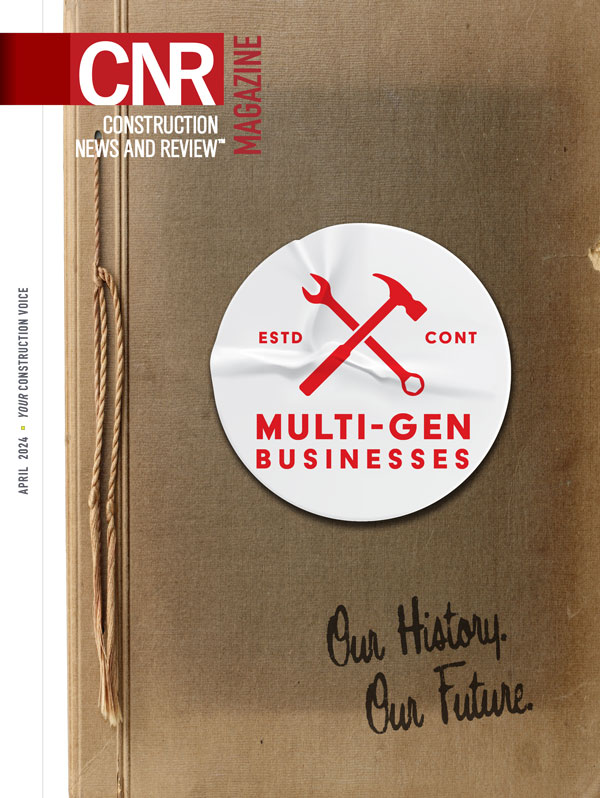Ageless Art: You’re Never Too Old or Young to Master Negotiation
By SAMANTHA COOK
In the chilly breezes of January, my three-year-old son stepped through the doors of a Spanish immersion school, marking the start of his first major adventure away from the familial nest. Each week, he spends about eight hours in this mini-society, making decisions and navigating interactions that are shaping his burgeoning sense of independence. This significant life change has been enlightening for both my husband and me and has mirrored the negotiation dynamics integral to my role as a CFO of a billion-plus dollar corporation and the cross-functional demands of my husband’s role as a vice president.
Negotiation is fundamentally about understanding and influencing human behavior, blending assertiveness with empathy. This skill, vital in high-stakes corporate environments – from negotiating with partners to managing team dynamics – has been deeply enhanced by my experiences in parenthood, providing a fresh perspective on human interactions fueled by the emotional depth of nurturing and pride in my son’s developmental milestones.
As Michael Corleone from The Godfather aptly puts it, “It’s not personal, Sonny. It’s strictly business.” However, I’ve found that business is indeed very personal, intertwined with the emotional and relational dynamics similar to those found in family life. The ability to navigate these effectively transcends the divide between personal and professional worlds.
At home, my son has honed his negotiation skills, not by chance, but through our intentional parenting. When bedtime looms and we signal that it’s time to sleep, he doesn’t simply comply; rather, he presents a well-thought-out case. He may argue for more snuggle time over reading, or propose watching a show together, cleverly negotiating how it might shorten story time. His approach varies by audience: with me, he sprinkles in Spanish, connecting through my native language, while with both his dad and me, his curiosity leads him to ask probing questions that delay bedtime. These moments show his understanding that different situations and individuals require tailored negotiation strategies.
Recently, his teacher shared an instance where he was faced with sharing a toy and the challenge of accepting a “no.” His approach? He began negotiating with his teacher over which toys he could play with, even suggesting timing compromises like playing with a specific toy “in eight minutes.” While his teacher appreciated his negotiation skills, she advised moderation. At home, we’re thrilled by these developments, seeing them as crucial life skills. If he can respectfully persuade both a CFO and a VP to reconsider a decision, then it’s a routine we’re excited to support, even if dictating terms might sometimes seem easier.
Effective negotiation tactics can improve outcomes by up to 42 percent, according to the Harvard Business Review. Furthermore, a significant portion of professionals believe they’ve never learned to negotiate effectively. Chris Voss, former FBI hostage negotiator and author of “Never Split the Difference,” suggests that life is a relentless series of negotiations, from the playground to the corporate boardroom.
My experiences – from navigating non-U.S. citizenship to advancing my career while earning dual master’s degrees – underscore the pivotal role of negotiation. These principles are universal, applicable whether soothing a toddler or closing a multimillion-dollar deal.
Here are essential strategies and practical tips for confident negotiation:
- Universal Accessibility: Negotiation knows no age or socioeconomic boundaries; it is a skill that can be developed from the sandbox to the executive suite.
- Empathetic Understanding: Recognizing the emotional and logistical needs of others is crucial, whether it involves a child or a corporate executive.
- Strategic Compromise: Knowing when and how to compromise can transform potential conflicts into win-win situations.
- Consistent Practice: Regular negotiation, regardless of stakes, builds confidence and sharpens decision-making skills.
- Tailored Communication: Adapt your language and approach based on your audience to enhance the likelihood of a favorable outcome.
Tactical Tips for Everyday Negotiators:
- Listen Actively: Focus more on listening than speaking to fully understand the other party’s position.
- Establish Clear Objectives: Define what you want to achieve and identify acceptable concessions before negotiations begin.
- Use Calm Persuasion: Maintain composure and use logical arguments to support your position.
- Practice with Role Plays: Simulate negotiations in a low-stress environment to build your skills.
- Reflect on Outcomes: After each negotiation, evaluate what worked and what didn’t to refine your approach.
As I witness my son’s negotiation skills flourish, it becomes evident that the lessons we instill today are molding his capabilities for both personal and professional interactions in the future. Each challenge he presents with his emerging tactics not only tests our resolve but also highlights the importance of continually refining my own skills. Indeed, if I’m not careful, this young negotiator might just become the best in our household.
Samantha Cook is CFO at Brinkmann Constructors.
Fresh Content
Direct to Your Inbox

YOUR RESPECTED INDUSTRY VOICE
Join CNR Magazine today as a Content Partner
As a CNR Content Partner, CNR Magazine promises to support you as you build, design and engineer projects not only in and around St. Louis, but also across the U.S. CNR is equipped and ready to deliver a dynamic digital experience paired with the top-notch, robust print coverage for which you’ve always known and respected the magazine.






